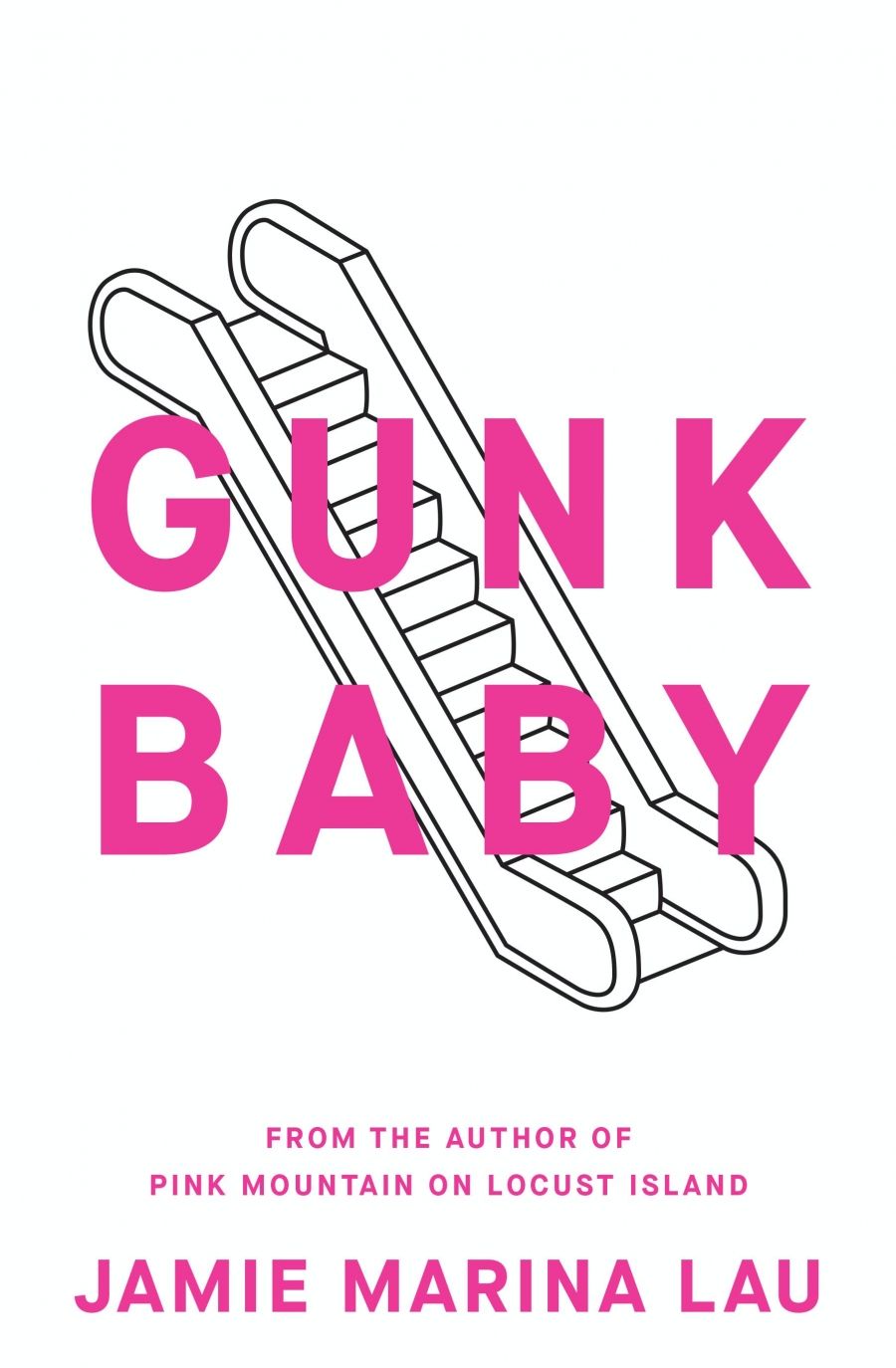
- Free Article: No
- Contents Category: Fiction
- Review Article: Yes
- Article Title: The violence of routine
- Article Subtitle: Jamie Marina Lau's audacious new novel
- Online Only: No
- Custom Highlight Text:
Go to any suburban shopping centre and you will find a metropolis of consumption. ‘Buy, buy, buy’, it screeches, whether you are contemplating fast-fashion T-shirts, new-age solutions to age-old problems, or services and pampering you don’t really need, all in the harsh glare of white lights and a controlled climate, temperature just right. The shopping centre, uniform and tidy, is where you can get everything you’ve ever wanted while also getting nothing at all.
- Featured Image (400px * 250px):

- Alt Tag (Featured Image): Gunk Baby
- Book 1 Title: Gunk Baby
- Book 1 Biblio: Hachette, $32.99 pb, 346 pp
- Book 1 Readings Link: booktopia.kh4ffx.net/NKk1z7
There is a looming threat of exotification or misunderstanding, exemplified in a news segment Leen watches, where an elderly white Australian woman receives a bag of kopi luwak coffee from a neighbour and is shocked to open it and find ‘a small animal’s shit in a bag’. But through misunderstanding blooms understanding – or so we’d like to believe. Besides, it’s where the money is.
There is a craving for normalcy in this venture – an addiction to order, or the feeling of it, even despite the knowledge that business and product are social constructs. ‘I had grown up searching for a sameness, as most children do,’ Leen muses. ‘It is a guilty pleasure to want so badly to be encased in it.’ She hires a receptionist, Farah, to help her manage the business, and they’re up and running.
Trouble begins when Leen befriends pharmacist Jean Paul, who introduces her to an underground network of guerrilla activists. Communicating through an online forum, this group conspires against people in management, organising increasingly extreme physical attacks to ‘interrupt the violence of routine’. The proposed outcome is noble – ‘demanding change in the character of those who have the resources to change the way that we function as a society’ – but the execution becomes progressively troubling. There are similarities to a workers’ union, but here the intent is to destroy rather than rebuild.
 Jamie Marina Lau (photograph via Hachette)
Jamie Marina Lau (photograph via Hachette)
Lau’s characters inhabit a particular milieu that will be familiar to millennial readers: disaffected twenty-somethings whose realities are formed through the works of Sartre and Lacan. Her clever characterisation exposes the fault-lines of a rigid adherence to ideology. In their attempts to dismantle capitalism, these characters have bought so deeply into it that they cannot extricate individual managers from their corporate positions. Fragmentary chapters from these enemies’ perspectives show them as people also struggling to scrape by; Lau invites the reader to question these hierarchies, probing deeply into the very nature of identity and its relationship to work and productivity.
Lau also illustrates the demise of ideological purity, as Jean Paul becomes almost tyrannical in his control of the uprising. Even Leen is not immune; when she discovers that Farah has been writing a novel at work, she is furious. She begins thinking almost exclusively in Robert Greene quotes, the text peppered with lines of wisdom from the American author whose self-help books concern the mastery of strategy and power. The tectonic plates continue to shift.
The poison of capitalism and consumerism seeps through the pages of Gunk Baby so subtly that the reader barely notices until they are drowning in it. Through Leen’s developing relationship with Luis, a retail worker at an IKEA-like store called K.A.G., we see a woman losing herself in the slow rot of romance – almost a form of capitalism in itself, as she exchanges one thing for another. Their home is stuffed with beautiful K.A.G. items; Luis’s horse is named after an expensive diary.
Leen finds herself trapped between allegiances – loyalty to her upwardly mobile boyfriend and to the workers’ cause. Her escape is driving: ‘to drive is to become nothing momentarily’. Dreams of vanishing, of ceasing to exist; to be nothing is better than trying to escape the inescapable. The reader, too, feels trapped; Lau presents a catch-22 in the options available to Leen, suggesting that to exist at all is to bow to a number of pressures, all of which chip away at the individual.
Everything happens in this novel, yet not much happens either. Much of its impact emerges in minutiae – passing conversations, pithy observations – as the characters try to make sense of the world around them: what it is and what they will it to be. A writer of the Zeitgeist, Lau uses a distinctly ‘online’ voice that speaks to the disconnect of the present generation and to the bleak, capital-driven path humanity took to get there.
An audacious, nihilistic novel, Gunk Baby explores the impossibility of autonomy within the bind of capitalism. It’s an ambitious work that illustrates the utter hopelessness of the middle-class millennial condition while deconstructing all the ‘isms’ that trap us. It is terrifying in its discombobulation, taking sharp turns and dumping the reader in the middle of nowhere. It is not a dystopia, because it doesn’t have to be – modern life is dystopic enough.
There is no happiness or satisfaction, no narrative absolution in the way it all unfurls – just more violence, more despair, more betrayal. Whether in the shopping centre, the home, or the nebulous spaces between, these characters get everything they have ever craved while also getting nothing at all.


Comments powered by CComment